#german-jewish artist
Text
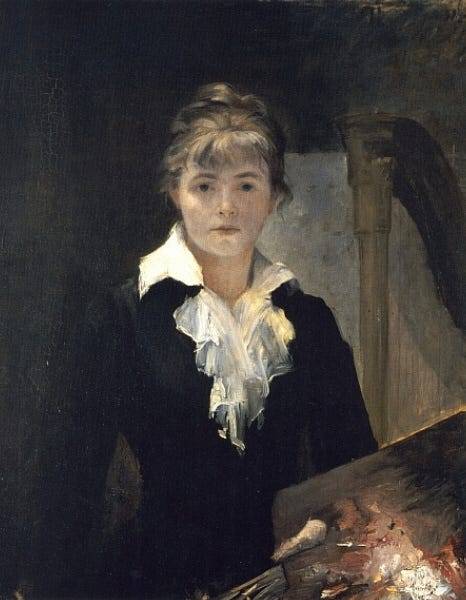

Louise Catherine Breslau (deceased)
Gender: Female
Sexuality: Lesbian
DOB: 6 December 1856
DOD: 12 May 1927
Ethnicity: Polish Jewish, German Jewish
Nationality: German / French (she moved around a bit)
Occupation: Artist
Note: Due to her success at the Salon and favorable notice from the critics, Breslau received numerous commissions from wealthy Parisians. She joined the Salon de la Société Nationale des Beaux-Arts in Paris in 1890, not only exhibiting in its salons but also serving on the jury. She eventually became the third woman artist, and the first foreign woman artist to be bestowed France's Legion of Honor award.
#Louise Catherine Breslau#Lesbian Visibility Week#lgbt history#lesbian history#jewish history#lesbianism#lgbt#female#lesbian#1856#rip#historical#jewish#ashkenazi jewish#german#french#artist#first#popular#popular post
207 notes
·
View notes
Text
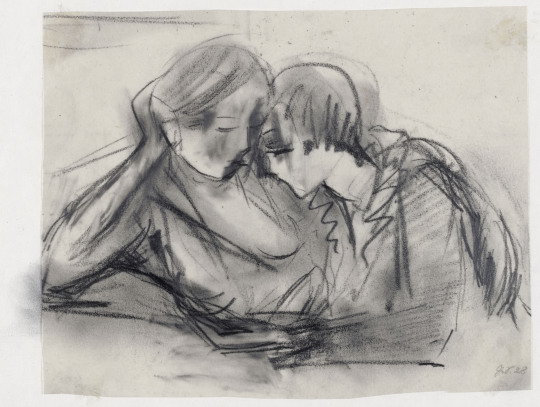
Gertrude Sandmann – Pink Nightgown and Black Pyjamas (1928)
#art#art history#gertrude sandmann#german#jewish#lesbian#lesbian art#wlw#women#drawing#fine art#women artists#lesbian artists#female artists#XXth century#20th century#female homosexuality#intimacy tag
233 notes
·
View notes
Text
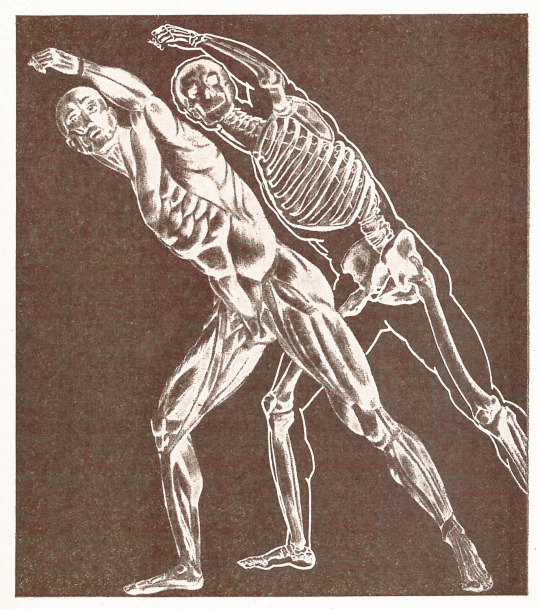
Fritz Kahn (1888-1968), ''O Corpo Humano'' (The Human Body), Vol. 1, 1940
Source
214 notes
·
View notes
Photo

Red Haired Girl - Anita Rée , 1927.
Jewish German , 1885 - 1933
Pen and ink drawing and chalk , 28,5 x 22,5 cm.
528 notes
·
View notes
Text

Petticoat Lane Market, London, Dorothy Bohm, 1960s
#photography#vintage photography#vintage#black and white photography#dorothy bohm#1960s#street photography#london#england#german#english#jewish#female artists#women artists
53 notes
·
View notes
Text
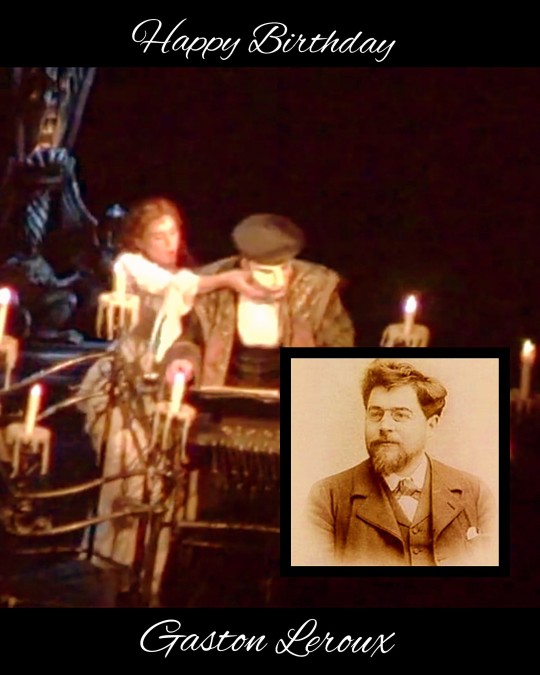
A happy heavenly birthday to Gaston Leroux, creator of The Phantom of the Opera.
#ethan freeman#poto#phantom of the opera#european musicals#euromusicals#euro musicals#german musicals#phantom vienna#phantom legends#the phantom of the opera#phantom broadway#erik phantom#phantom erik#jewish singers#jewish actors#jewish artist#jewblr#jumblr
12 notes
·
View notes
Text
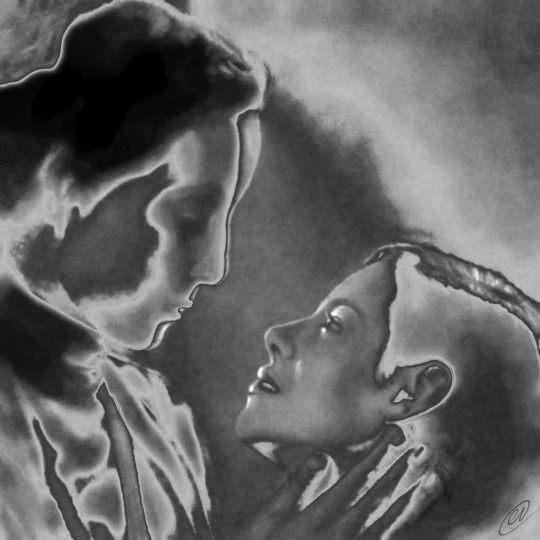
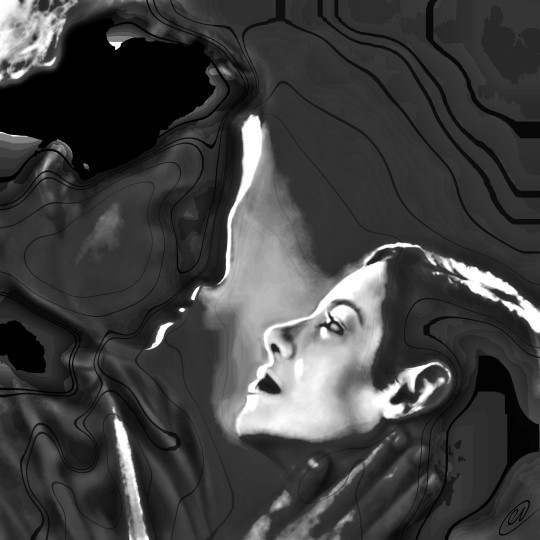
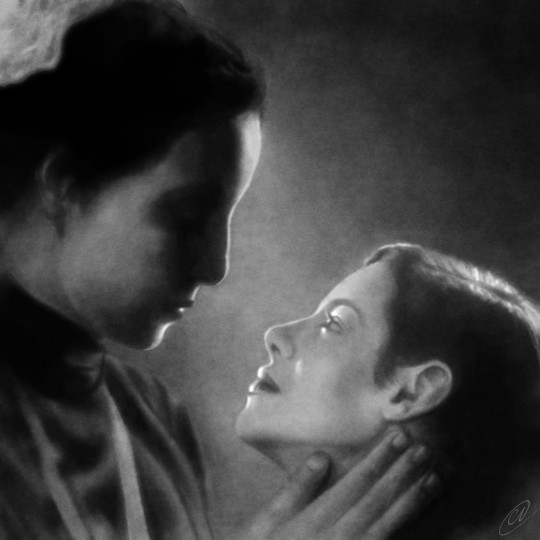
Mädchen in Uniform (Girls in Uniform) - digital painting
(06/2023)
Part of my 2023 Pride month art project where I celebrate some of my fav queer films!
#madchen in uniform#artists on tumblr#mädchen in uniform#film art#movie art#queer film#pride#lesbian#lgbtq art#german film#1930s film#digital painting#digital art#black and white#part of my love for this film stems from it being as old as it is... and the fact it still survives!#a film created by and staring jewish women made in 1930s germany about (sympathetic!) sapphic characters is a miracle!
20 notes
·
View notes
Text
One thing taking art history in college gave me is an intense distrust of anyone who unironically uses "degenerate" as an insult for weird art of any kind.
#it's what the nazis called modern art#(or you know. art by jewish artists or 'subversives')#at least that's the english translation of the word they used#they held an 'art show' where they mocked all the german modern art they could get a hold of#and then usually destroyed it right after#bored badgering
1 note
·
View note
Text
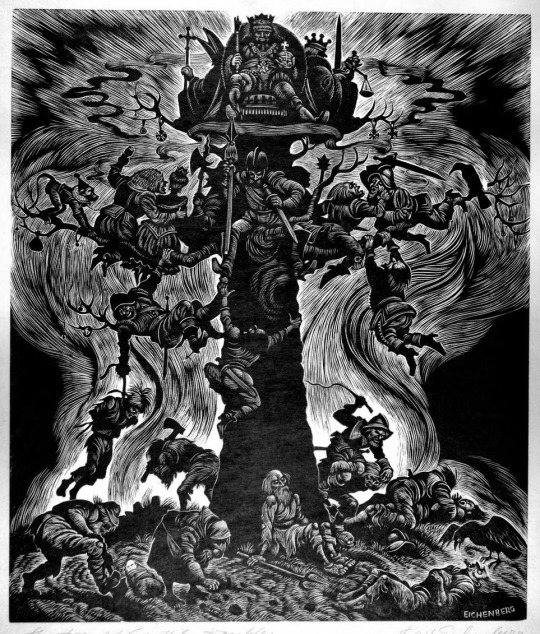
Fritz Eichenberg (German-American, b. 1901)
The Tree of Earthly Troubles, 1981
Woodcut print on paper
5 notes
·
View notes
Text
"Where do you think my grandmother spent the Second World War?"
"Adam Broomberg, a prominent Jewish artist and Berlin-based photographer, asked this of the police after they grabbed him by the neck, threw him to the ground, beat him on the back then led him away in handcuffs."
(later in the article...)
"The justification for a pre-emptive ban on a child-friendly afternoon action to hold up watermelons, the fruit associated with Palestine, would almost be comedic if it weren’t quite so cynical—’antisemitic watermelons’. On Nakba Day itself, police vigilance was so extreme that police at one point stopped people from dancing the dabke on the basis that this traditional Palestinian dance potentially amounts to ‘political expression.’ All literature about BDS and any flyer containing the word ‘Nakba’ was seized."
6K notes
·
View notes
Text
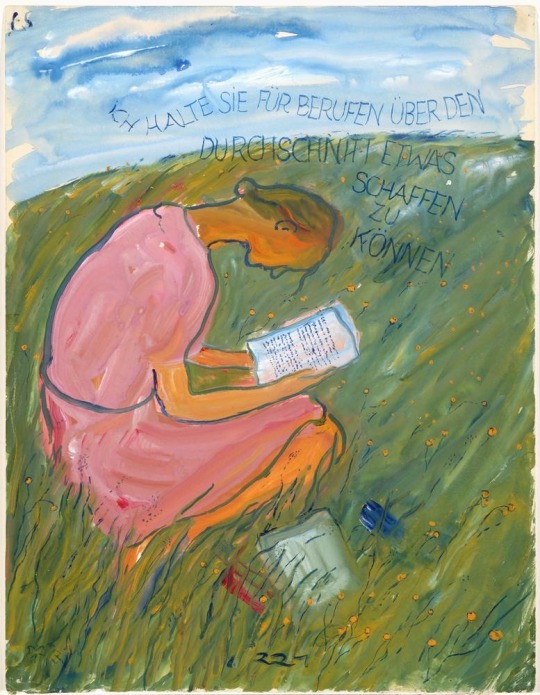
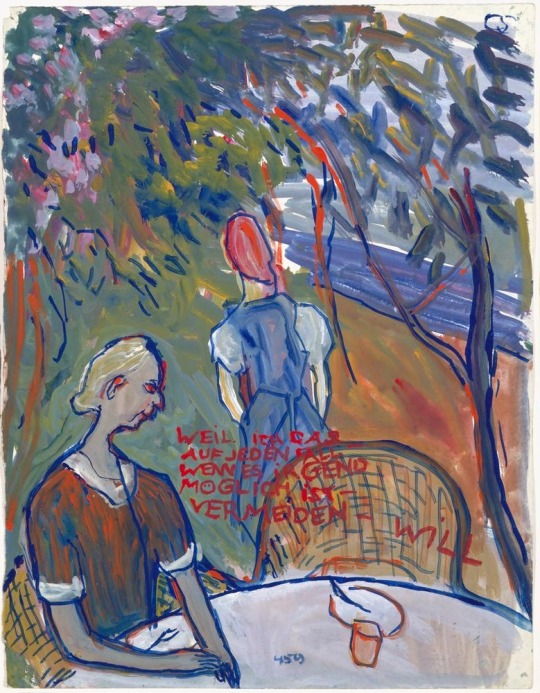
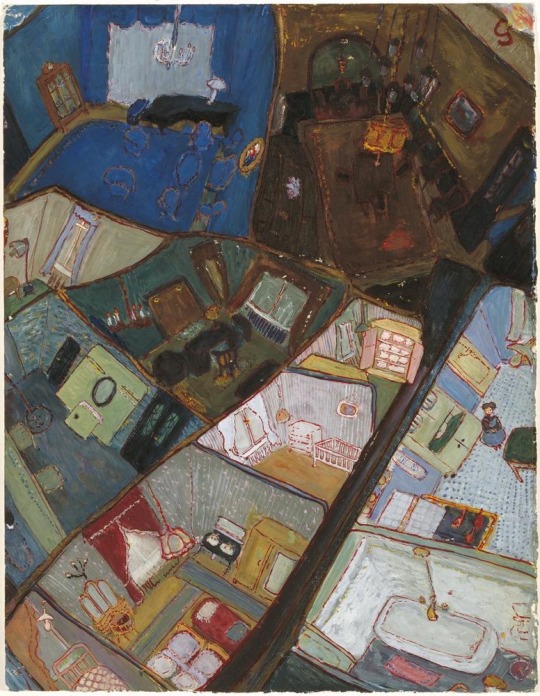
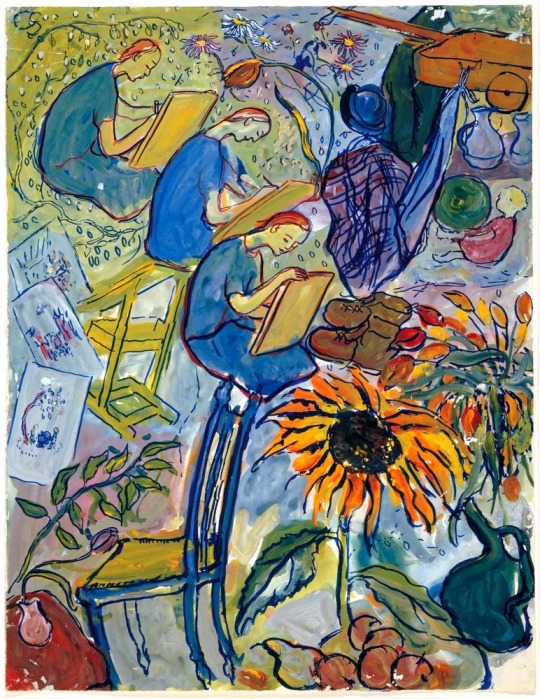
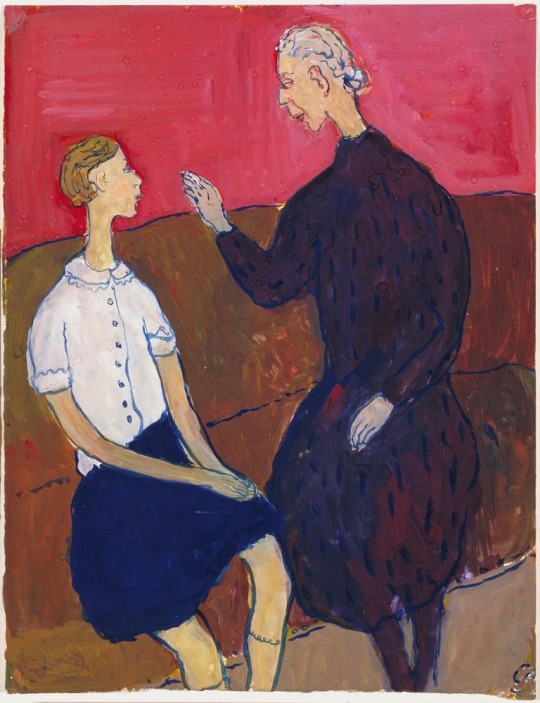
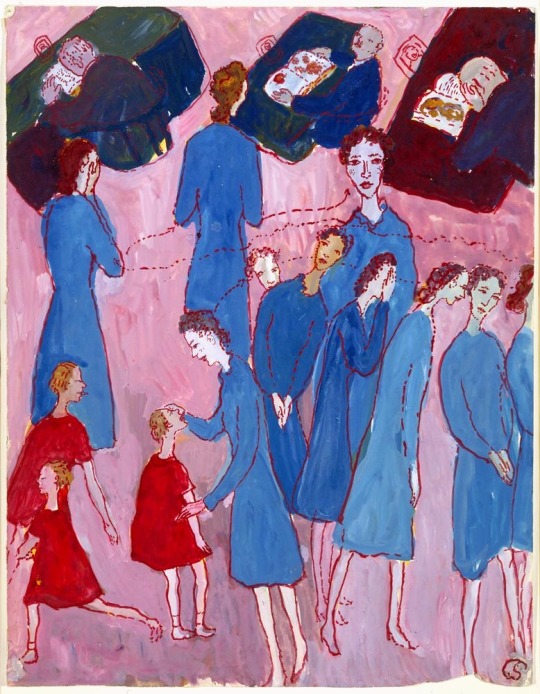
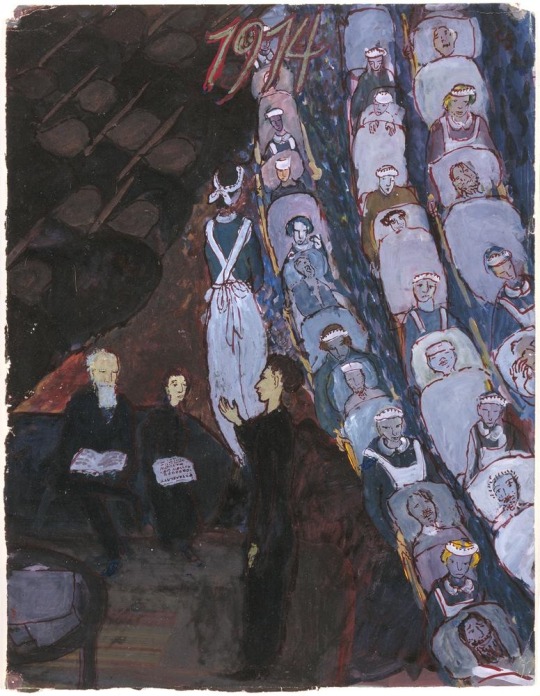
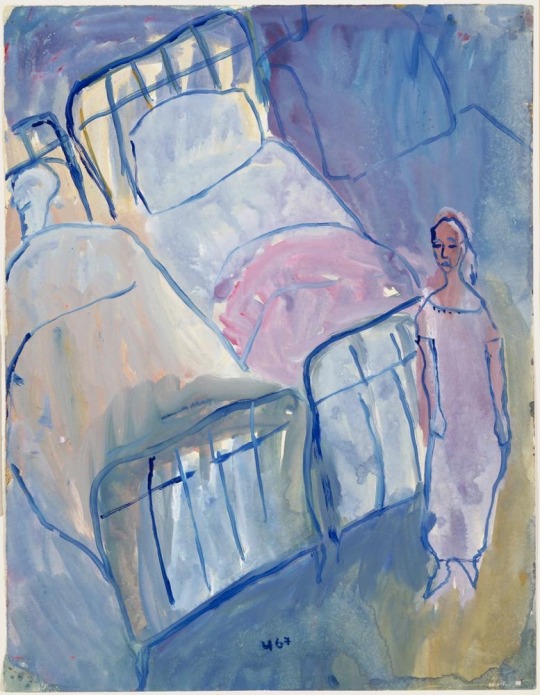
“Life? Or Theatre? is the name that Charlotte Salomon gave to a sequence of nearly 800 gouaches she produced between 1940 and 1942…The gouaches read like a series of story boards for a film, following the events of Salomon's life. The works have been likened to a diary, but her account is fictionalized, with the main characters in Solomon's life acting as the dramatis personnae…As Nazi aggression escalated, the Berlin-born Jewish artist Charlotte Salomon sensed the end was near. She wrapped over 800 of her paintings in brown paper and handed them to a friend with the words: “Take good care of it, it's my whole life.” Charlotte died in Auschwitz at 26.”
(the entire collection is now available for free online (in english/german/french with audio/music options) + once you encounter her work you’ll never be the same so go read it!!! 🤍)
#these are some of my favorite pieces i chose to entice ppl but press the link for the accompanying text!#charlotte salomon#art
1K notes
·
View notes
Photo
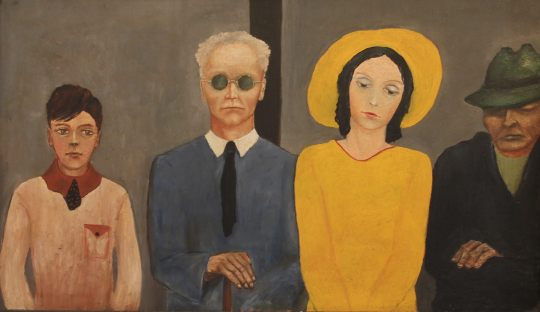
People in the Tram I - Peter Weiss , 1934.
German - Swedish , 1916-1982
Oil on panel , 53 x 91 cm.
126 notes
·
View notes
Text
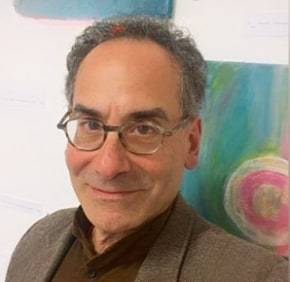
Press release on Ethan's upcoming exposition opening with recital in Hamburg read here
#ethan freeman#poto#phantom of the opera#european musicals#euro musicals#euromusicals#german musicals#painters#exposition#painter#jewish artist#jewish actors#jewish singers#jumblr#jewblr
6 notes
·
View notes
Text
German elites have convinced themselves that they “get” antisemitism in a way that Jews simply can’t. They seem to have gained enlightenment through genocide. An example: When Der Spiegel did a bizarre takedown of Greta Thunberg, the only climate activist in the entire world they could find who didn’t support Palestine was Luisa Neubauer, a leader of Fridays for Future in Germany. Neubauer was ready to accuse the entire climate movement of antisemitism. How does she know? Is she particularly close to Jewish culture? Has she been a scholar of anti-Jewish discrimination? No, the only qualification she referred to is that her great-grandfather from the Reemtsma dynasty was an SS member who donated huge sums to the Nazi party. Inheriting a ton of money from Nazis seemingly offers a unique education in liberal humanist values.
180 notes
·
View notes
Text
But Germany’s performances of repentance have their limits. They do not extend, for example, to the genocide the German colonial army committed in Namibia against Herero and Nama people between 1904 and 1908, killing tens of thousands. Germany did not officially apologize for those bloody acts until 2021 and has not agreed to pay meaningful reparations to descendants of the victims. If the new German identity relies on isolating the Holocaust as a shameful aberration in national history and nullifying it via solemn remembrance, there is little room for the memory of colonial violence in the nation’s self-mythology. Genocide scholar Dirk Moses named this approach the “German catechism” in a 2021 essay that sparked heated debate. “The catechism implies a redemptive story in which the sacrifice of Jews in the Holocaust by Nazis is the premise for the Federal Republic’s legitimacy,” wrote Moses. “That is why the Holocaust is more than an important historical event. It is a sacred trauma that cannot be contaminated by profane ones—meaning non-Jewish victims and other genocides—that would vitiate its sacrificial function.”
Accordingly, Germany now sees its post-Holocaust mandate as encompassing not a broader commitment against racism and violence but a specific fealty to a certain Jewish political formation: the State of Israel. Germany has relied on its close diplomatic relationship to Israel to emphasize its repudiation of Nazism, but its connection to the Jewish state goes even further. In 2008, then-chancellor Angela Merkel addressed the Israeli Knesset to declare that ensuring Israel’s security was part of Germany’s “Staatsraison,” the state’s very reason for existence. If asked why it is worth preserving a German nationalism that produced Auschwitz, Germany now has a pleasing, historically symmetrical answer—it exists to support the Jewish state.
To that end, in recent years, Germany’s laudable apparatus for public cultural funding has been used as a tool for enacting a 2019 Bundestag resolution declaring that the Boycott, Divestment, and Sanctions (BDS) movement targeting Israel is antisemitic. Although the resolution is technically nonbinding, its passage has led to an unending stream of firings and event cancellations, and to the effective blacklisting of distinguished academics, cultural workers, artists, and journalists for offenses like inviting a renowned scholar of postcolonialism to speak, tweeting criticism of the Bundestag resolution, or having attended a Palestinian solidarity rally in one’s youth. A network of antisemitism commissioners—a system explored in this issue in a feature by Peter Kuras—has been deputized to monitor such offenses. These commissioners are typically white, Christian Germans, who speak in the name of the Jews and often playact Jewishness on a public stage, posing for photo ops in yarmulkes, performing Jewish music, wearing the uniform of the Israeli police, and issuing decrees on who is next in the pillory. When they tangle with left-wing Jews in Germany, canceling their events and attacking them as antisemites in the pages of various newspapers, they suggest what Germany’s antisemitism commissioner Felix Klein has said directly: That the Jews are not being sensitive enough to what antisemitism means to the Germans—that, in fact, these Jews do not understand antisemitism at all. In a perverse twist, the fact that the Germans were the most successful antisemites in history has here become a credential. By becoming the Jews’ consummate protectors, Germans have so thoroughly absorbed the moral lessons bestowed by Jewish martyrdom that they have no more need for the Jew except as symbol; by the logic of this strange supersessionism, Germans have become the new Jews. This is not only a matter of rhetorical authority on Jewish matters but is also often literal, as this self-reflexive philosemitism has led to a wave of German converts to Judaism. According to Tzuberi, “The Jewish revival is desired precisely because it is a German revival.”
If Jews are negated by this formulation, Palestinians are villainized by it. Last year, when the German state banned Nakba Day demonstrations, only days after the murder of Palestinian journalist Shireen Abu Akleh, police justified this suppression by claiming, in a familiar racist trope, that protesters would not have been able to contain their violent rage. Indeed, in Germany Palestinian identity itself has become a marker of antisemitism, scarcely to be spoken aloud—even as the country is home to the largest Palestinian community in Europe, with a population of around 100,000. “Whenever I would mention that I was Palestinian, my teachers were outraged and said that I should refer to [Palestinians] as Jordanian,” one Palestinian German woman speaking of her secondary school education told the reporter Hebh Jamal. Palestinianness as such has thus been stricken from German public life. In The Moral Triangle, a 2020 anthropological study of Palestinian and Israeli communities in Germany by Sa’ed Atshan and Katharina Galor, many Palestinians interviewed said that to speak of pain or trauma they’ve experienced due to Israeli policy is to destroy their own futures in Germany. “The Palestinian collective body is inscribed as ontologically antisemitic until proven otherwise. Palestinians, in this sense, are collateral damage of the intensifying German wish for purification from antisemitism,” wrote Tzuberi.
July 5, 2023
249 notes
·
View notes
Text
"I have repeatedly and unequivocally condemned Hamas. I have repeatedly said that the 7 October attacks were unspeakable and horrific. Apparently, this is deemed insufficient. In the German context, the term Zivilisationsbruch (“breach of civilisation”) is used by scholars as a reference to the Shoah [the Holocaust]. In effect, the museum is arguing here that they can’t show my work because I have not acknowledged an equivalence between the Holocaust and the 7 October attacks. To demand that such an equivalence be pronounced, as a condition for exhibiting my work, is to effectively demand that I relativise the Holocaust. In order to comply, I would have to betray my fundamental understanding of the Shoah as a singular historical event. Need I point out the absurdity of Germans dictating to Jewish people how they should articulate their reactions to the heinous massacre of Jewish people at the hands of terrorists? What will come next? Will every Jewish person in this country be asked to retrospectively condemn the Shoah and unequivocally deny having empathy for the Nazi regime?"
"The notion that every progressive Jew in this country can be assumed to be harbouring antisemitism unless they publicly denounce Hamas is patently ridiculous. One is apparently guilty by default, until one declares oneself innocent. This reminds me of the post-9/11 climate, in which Arabs, Muslims and Sikhs who did not publicly condemn the terrorist attacks on the World Trade Center were automatically suspected of condoning al-Qaida."
179 notes
·
View notes